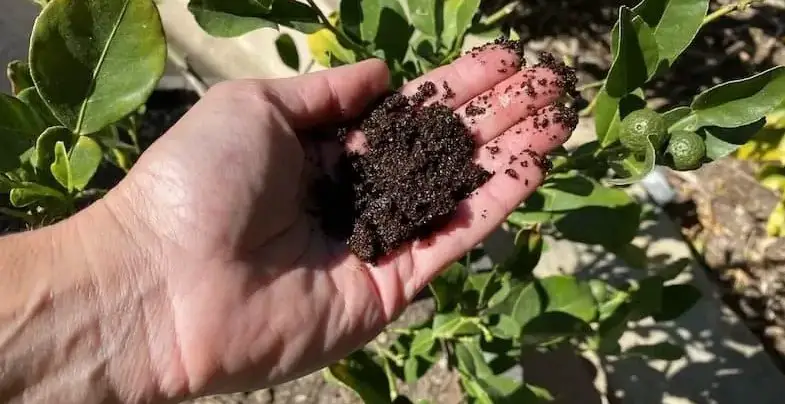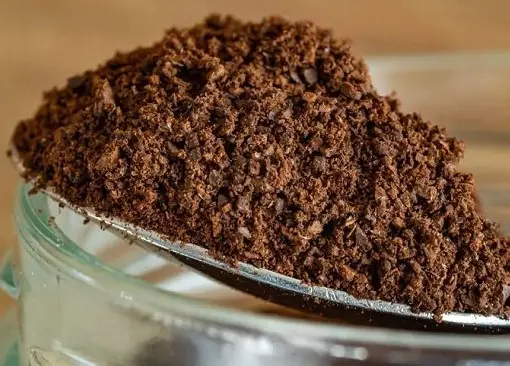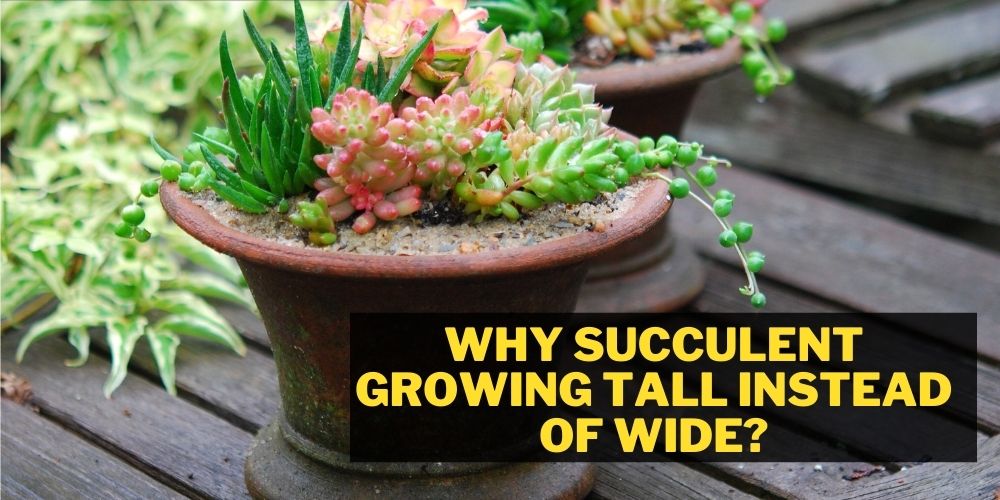Coffee grounds are fast becoming a very popular complementary fertilizer. And to think, they are merely a byproduct of an extremely common drink. They contain many important nutrients that many plants and trees can benefit from.
But, are coffee grounds good for lemon trees as well?
Yes, coffee grounds are very helpful for lemon trees and they work as fertilizers. However, you shouldn’t use only coffee grounds as the source of fertilization while growing lemon trees.
Coffee grounds are packed with nitrogen, phosphorus and potassium. Additionally, they can also add some smaller amounts of certain critical micronutrients.
These include calcium, magnesium, boron, copper, iron, and zinc. And the best part is that the lemon trees thrive at a very similar pH level to coffee grounds. That’s what makes them such a good match. Lemon trees thrive in soils which have between 5.5-7.0 pH.
The optimal is around 6.0. When coffee grounds are used in the growing medium of a lemon tree, they can balance out the pH, so it is extremely close to where the lemon tree needs it to be.
Let’s look at just how good coffee grounds are for lemon trees and how to use them effectively.

Table of Contents
Are coffee grounds good for Lemon trees?
Coffee grounds are an extremely handy complementary fertilizer for lemon trees. It’s not ideal to use the grounds alone as a source of fertilization, though. The issue with doing so is not knowing how much of each nutrient/micronutrient is present because you’re using it.
Unless, of course, you are 100% sure of the amount. It’s always good practice to use materials such as this in moderation. Too much caffeine at once can cause some damage, so keep that in mind.
You may see that the growth of the fruits and flowers becomes stunted with extremely high amounts. When used correctly, though, coffee grounds will immediately improve the structure of the lemon tree’s soil.
Additionally, they will continue to condition the soil over time, making them a very handy addition to your lemon tree’s growing routine. The nutrients/micronutrients they add can help produce bigger, better-quality fruit for longer periods.
How Do Coffee Grounds Help Citrus Trees?
Coffee grounds assist citrus trees by balancing out and maintaining the pH level. They can grow with the pH of the soil at anywhere between 5.5 (slightly acidic) and 7.0 (neutral).
They thrive best at around 6.5, though. So if the soil lacks acidity or the pH is way too high, adding coffee grounds will bring down the pH and maintain it at around 6.5-6.8.

Another handy use for coffee grounds on citrus trees is the nutrients and micronutrients they add to the soil. Coffee grounds contain a well-received amount of nitrogen which helps the plant take in sunlight to use for energy via the process known as photosynthesis.
The grounds also consist of smaller amounts of potassium and phosphorus.
Potassium helps produce adenosine triphosphate (ATP) that helps regulate the rate of photosynthesis. Phosphorus, of course, is a component of ATP.
So these main nutrients work together harmoniously to create a very important process. Coffee grounds are also a known repellent for certain insects. Some garden pests, such as slugs, fleas, ants, snails, etc., detest the stench of the freshly ground beans and avoid them at all costs.
What is the best fertilizer for lemon trees?
Lemon trees require a more acidic fertilizer. The best store-bought combination is 6-6-6 (6% nitrogen, 6% phosphorus, and 6% potassium). This is an even balance of the 3 important nutrients. Alternatively, ammonium sulfate can reap great rewards as it usually contains around 21% nitrogen.
The latter is more of a quick correction. Any of these 2 artificially manufactured products will level out the pH with ease.
How to prepare coffee grounds for lemon trees?
Coffee grounds are a ridiculously useful byproduct fertilizer that can be used on your lemon trees with great effect. There is a catch; in most cases, they can’t just be poured directly onto the tree’s soil.
They must go through a ‘cleansing’ process to remove any chemicals which would have been used in the processing of the beans before the consumer gets a hold of them.
Let’s look at how to transform your coffee grounds into usable fertilizer.

Know Your Coffee Ground size
The finer the coffee beans are, the faster they break down. It’s as simple as that, so the best sizes are medium fine (0.5mm), fine (0.3mm) or super fine (0.1mm)
Properly Keep the coffee ground in a Container
Naturally, collecting coffee grounds will take some time to have enough to have any formidable effect. The best way to collect is to purchase either a knock box or a container from IKEA. They go for around $5 and are designed specially to collect grounds.
Ensure a few air holes are in the container so the grounds don’t sweat up and go moldy. Letting them cool for 5 minutes after use is also good practice.
Apply Directly in Small amount
You can apply small amounts directly onto the soil of your lemon tree. The issue with just pouring your whole stash on can toxify the soil in larger amounts. Always compost the grounds first to dilute them if you want to use larger amounts.
Prepare Your Soil compost
Due to the higher content of nitrogen found in coffee grounds, they are considered a ‘green material’. When preparing your soil compost, the general ratio should be ⅓ green material to ⅔ brown material.
Some brown materials that are great to mix and easy to find are dry fall leaves, straw, hay or small bark chips. Simply mix the materials using a pitchfork and leave them to decompose.
Allow the coffee grounds to disintegrate
The process of composting will take around 6 months. This timeframe will ensure that any chemical residue has the chance to break down and filter out.
It’s important to not rush the time taken as any nasties used on your lemon trees too soon can have a negative effect.
Watering properly
Once the compost is ready to use, you can mix it into the top 40cm of the lemon tree root covering the soil mix. Using the compost alone can be too dense and block water from getting to where it needs to go. Give the soil/compost a decent watering without flooding. Keep it moist, and make sure not to let it go bone dry.
How much coffee grounds for a lemon tree?
Generally, only add 30-35% coffee grounds to your final compost volume. So, you have your ⅓ brown material to ⅔ green material, taking your overall coffee grounds to ⅓ of the total. It’s impossible to be exact.
Just keep in mind that if you have too many coffee grounds, they can prevent the good microbes from breaking down any organic matter included in the mix.
How often should I apply coffee grounds to my lemon trees?
There is no single rule on this matter, but one thing to think about is any worms that may be helping with the soil ‘cleansing’ If you are adding your grounds too frequently, the worms may be affected by their extremely acidic nature of them.
I find that using a cup or 2 per week with my worms doesn’t cause any issues whilst remaining beneficial to my lemon trees.
When Should You Apply Coffee Grounds to Your Lemon Trees?
The best time to start using your newly created fertilizer out of coffee grounds is in the early spring. This time of year is usually before the trees start to bloom. The grounds will assist in really punching those flowers out, so the fruits have a solid amount of nutrients to grow.
Frequently Asked Questions (fAQs)
Do Coffee Grounds Hurt Citrus Trees?
Coffee grounds can only harm citrus trees if they are added to the soil directly in large amounts. They can cause toxicity in the soil, which isn’t good for any plant, let alone citrus trees. The best way to use coffee grounds is to compost them first.
Do Meyer lemon trees like coffee grounds?
Meyer lemon trees thrive using composted coffee grounds just as much as other citrus trees. They require a pH of between 5.5-6.5, which is slightly more acidic than most citrus trees (6.0-7.0). Coffee grounds maintain a pH of 6.5-6.8, so the grounds are a great additive for these variants of lemons. Use a pH tester to ensure they’re on the 6.5 level.
What plants can I put coffee grounds on?
Coffee grounds are most beneficial to plants that like more acidic soil. Some examples of these plants are blueberries, carrots, radishes, cabbage, lilies, rhododendrons, hydrangeas, hollies, azaleas and roses.
Conclusion:
So are coffee grounds good for lemon trees?
Absolutely! As long as they aren’t added directly to the soil in larger amounts.
Additionally, they are much easier to use once composted using ⅓ grounds to ⅔ leaves/bark chip mix. They add some much-needed nutrients and micronutrients they may struggle to get elsewhere! We hope that this article has added some value to your garden.


